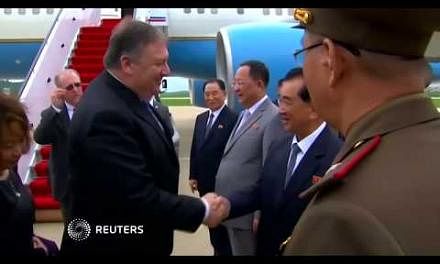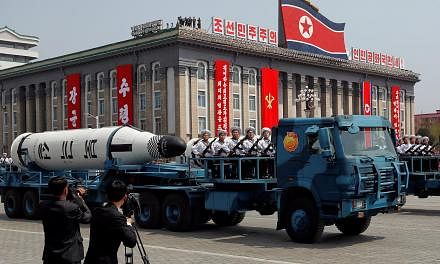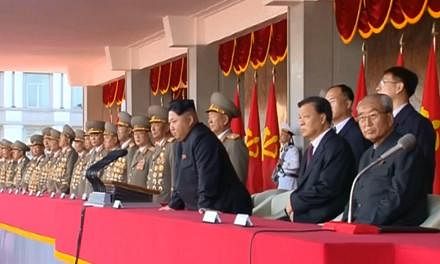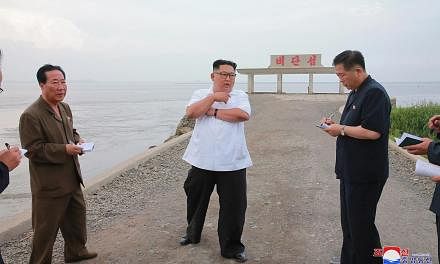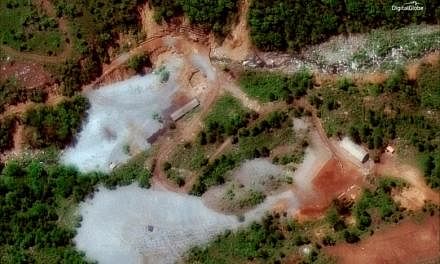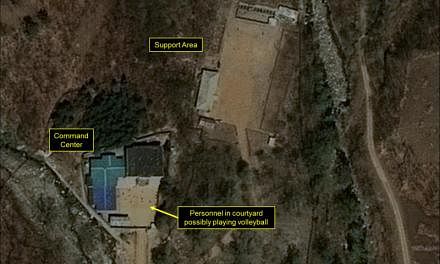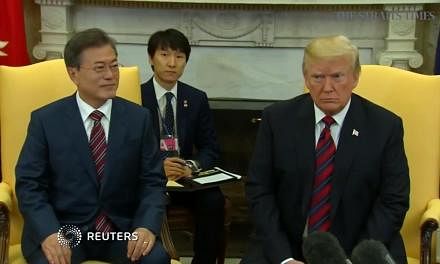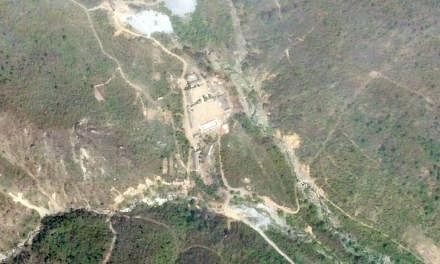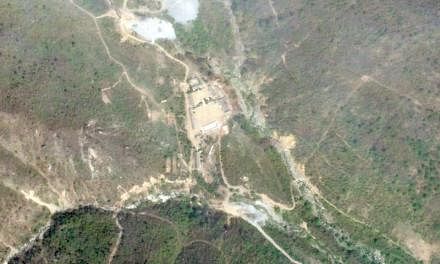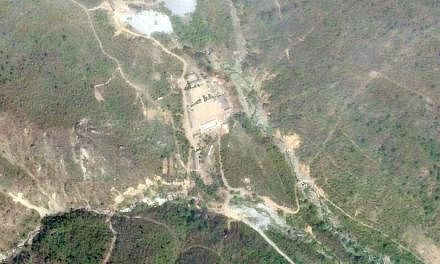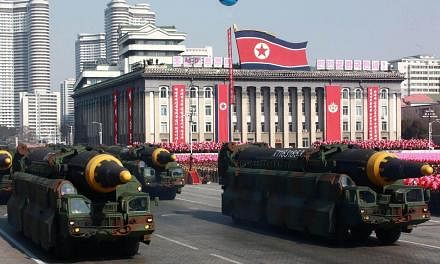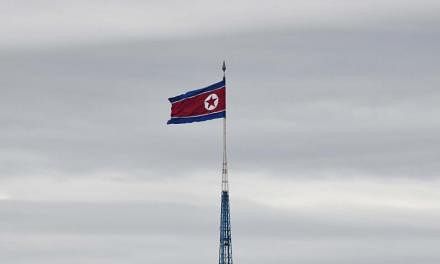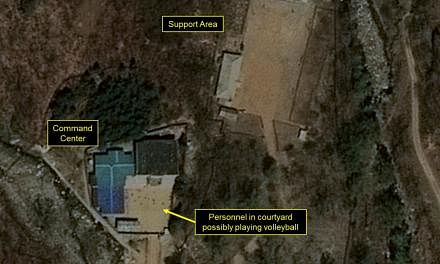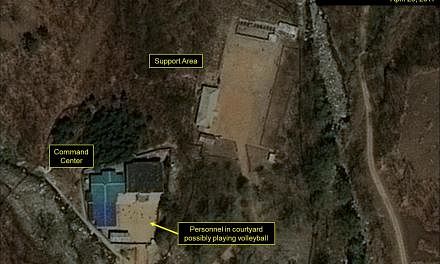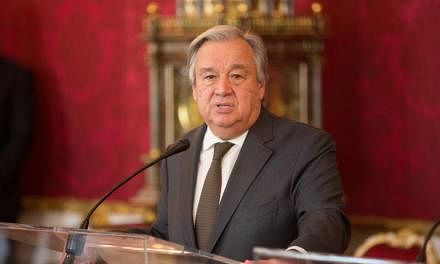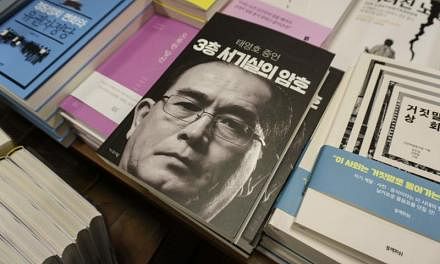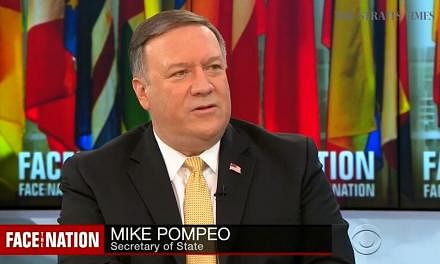SEOUL - A shallow 3.5-magnitude quake was detected near North Korea's nuclear test site yesterday, sparking concerns that the regime might have conducted another nuclear test.
The United States Geological Survey said it "cannot conclusively confirm" whether the quake was natural or man-made; while South Korea's meteorological agency said it was a "natural earthquake", explaining that sound waves that usually accompany artificial earthquakes were not detected.
China's earthquake service was the first to report the seismic activity, detected at 4.29pm (Singapore time). It called it a "suspected explosion" initially but said later that the seismic activity was not a nuclear explosion and had the characteristics of a natural tremor.
. 
Mr Lassina Zerbo, executive secretary of the United Nations-backed Comprehensive Nuclear-Test-Ban Treaty Organisation, said two seismic events were detected in North Korea yesterday, but are "unlikely man-made". Analysis is ongoing, he said in a Twitter message.
The news coincided yesterday with Iran's announcement of its successful test of a new medium-range missile and came after North Korea and the US hurled fiery threats at each other.
Last Friday, North Korea threatened to detonate the "most powerful" hydrogen bomb in the Pacific Ocean - a response to US President Donald Trump's warning to "totally destroy" the regime in his speech at the UN last Tuesday.
Tensions have been high since Pyongyang tested two intercontinental ballistic missiles in July and conducted its sixth nuclear test on Sept 3, leading the UN Security Council to approve stiffer sanctions against the regime.
Yesterday's quake was detected about 20km away from North Korea's Punggye-ri nuclear test site in the north-east, said the Korea Meteorological Administration.
But its magnitude was lower than those of quakes triggered by previous nuclear tests. The first detonation in 2006 triggered a 4.1-magnitude quake, while this month's test led to a 6.3-magnitude quake.
A spokesman for South Korea's presidential Blue House said various institutions analysing the seismic activity maintain that "it was natural and not from explosion".
Russia's weather agency noted that radiation levels after the quake were normal.
Still, Professor Shi Yinhong of Renmin University in Beijing told The Sunday Times that he "would not be surprised" if it turned out to be a nuclear test. He noted that with Mr Trump and US allies making "unprecedented and unceasing military threats" against North Korea, its leader Kim Jong Un "now wants to ensure his political and personal survival and the only way is to come up with an effective nuclear missile as quickly as possible".
Yesterday, Iranian state media reported that Iran has successfully tested a 2,000km-range ballistic missile, which it had displayed at a military parade last Friday. The test-firing of the Khorramshahr missile, which Iran said could carry several warheads, is likely to raise concern in Washington.
State television carried footage of the launch of the Khorramshahr missile, as well as an in-flight video taken from the nose cone of the missile, which can carry multiple warheads, said Agence France-Presse.
The test comes at the end of a heated week of diplomacy at the UN General Assembly in New York, where Mr Trump accused Iran of destabilising the Middle East, calling it a "rogue state whose chief exports are violence, bloodshed and chaos", said AFP.



